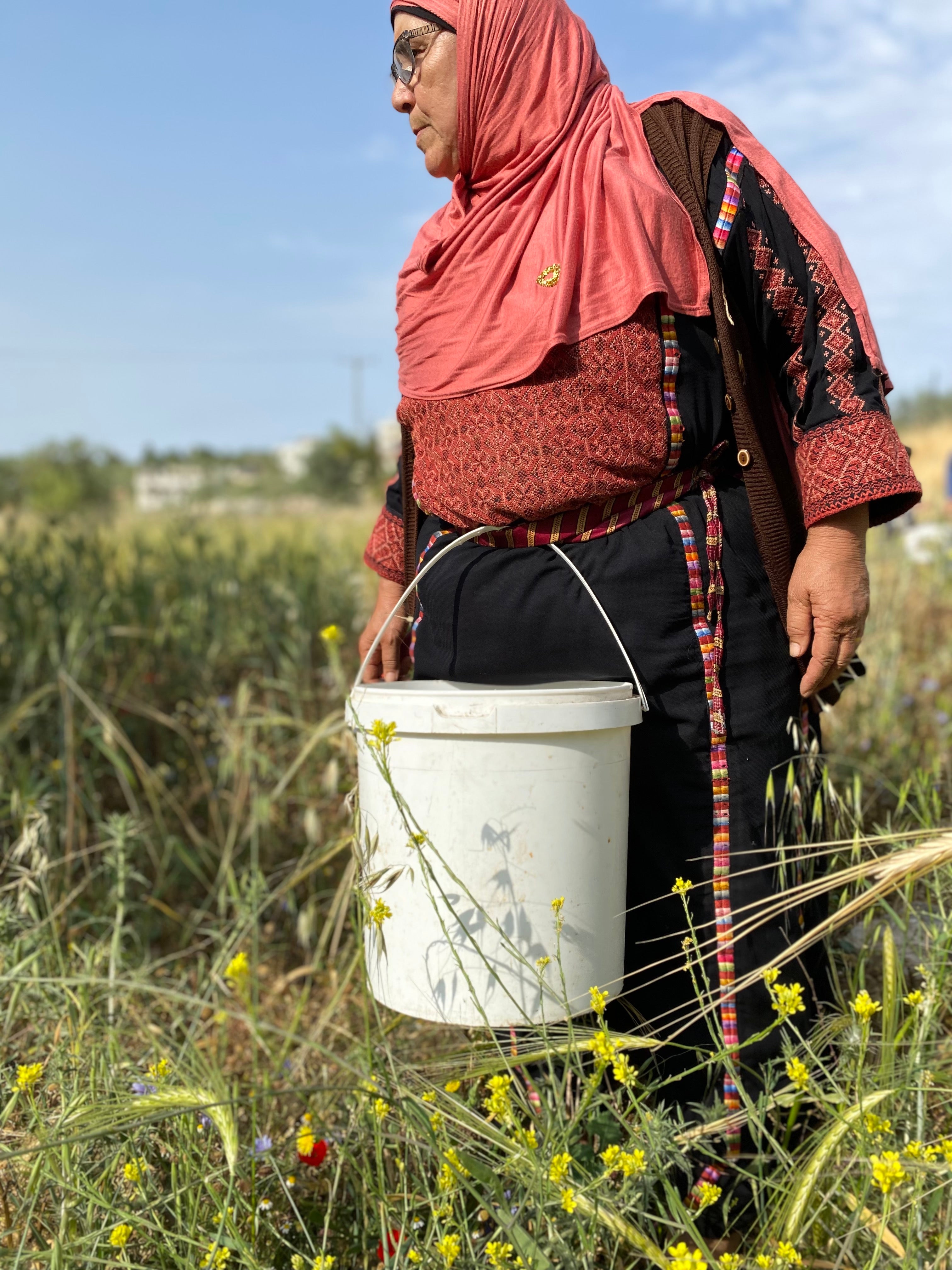
What was the Palestinian Dress, el Thob, used for?
I had the great honor of being invited by my dear friend, the wonderful chef and teacher, Hani elFar, on one of his Palestinian culinary tours with Tastes of Palestine. We met him at 6:30am in Beiteen, a beautiful historic village just outside of El Bireh.
When we arrived, the Hajja was in her shed kneading dough and baking. In my 20 years living in Palestine, I've never heard of or tasted charakeesh until this year. The hajja was impressively efficient, kneading and resting dough, moving on to baking or frying, always between two different creations. And always with a smile and warmth, even to my little ones who insisted to help and hug her.

When the breads and pastries were finished, we went to begin the harvest. The hajja plants a balady wheat, an heirloom ancient grain, that she collects seeds from every season. This tradition and these grains are from seeds handed down from her grandparents to her parents and her parents to her.

It was an amazing experience to harvest alongside this woman who cherishes and practices tradition. Before harvesting, and after baking, she went to her house to change. She harvested in her thob, the traditional Palestinian dress.
Today thobs are often worn for weddings or other special occasions. Still, there are hajjas on the street every day, running errands and shopping, wearing their hand-stitched thobes. I remember how I saw a hajja sitting on the side of the road last year and when I asked to photograph her, she laughed and said the thob she was wearing was not a nice one. It was her work thob, just like our hajja in Beiteen. A garment that could take a month to stitch and they consider it a work thob. Just imagine what their dress thobes look like!
It was beautiful to experience this work alongside her and live Palestinian heritage. My children participated in the collecting of the ancient grain as we learned from and laughed with the hajja. Eventually she called a breakfast break and we joined around a small table to sip sweet mint tea and taste all of the breads and pastries.
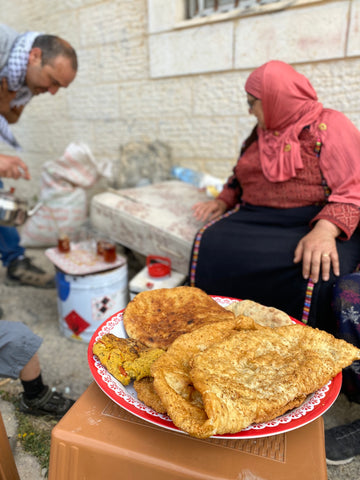
I've never tasted such delicious and fresh breads that melted in your mouth and left the pleasure of toasted sesame and rich olive oil. It was truly such a pleasure. After breakfast we returned to the field. Unfortunately my little family had to leave before they smoked the green wheat to make the freeke.
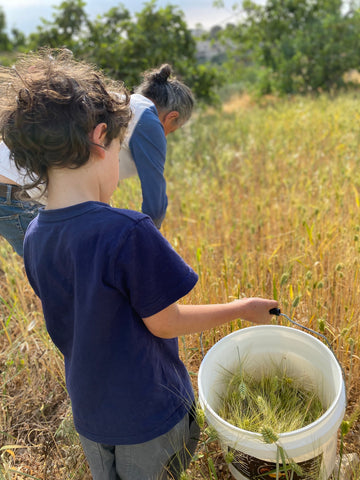
It was an amazing morning and I'm so grateful we were part of this traditional Palestinian practice.

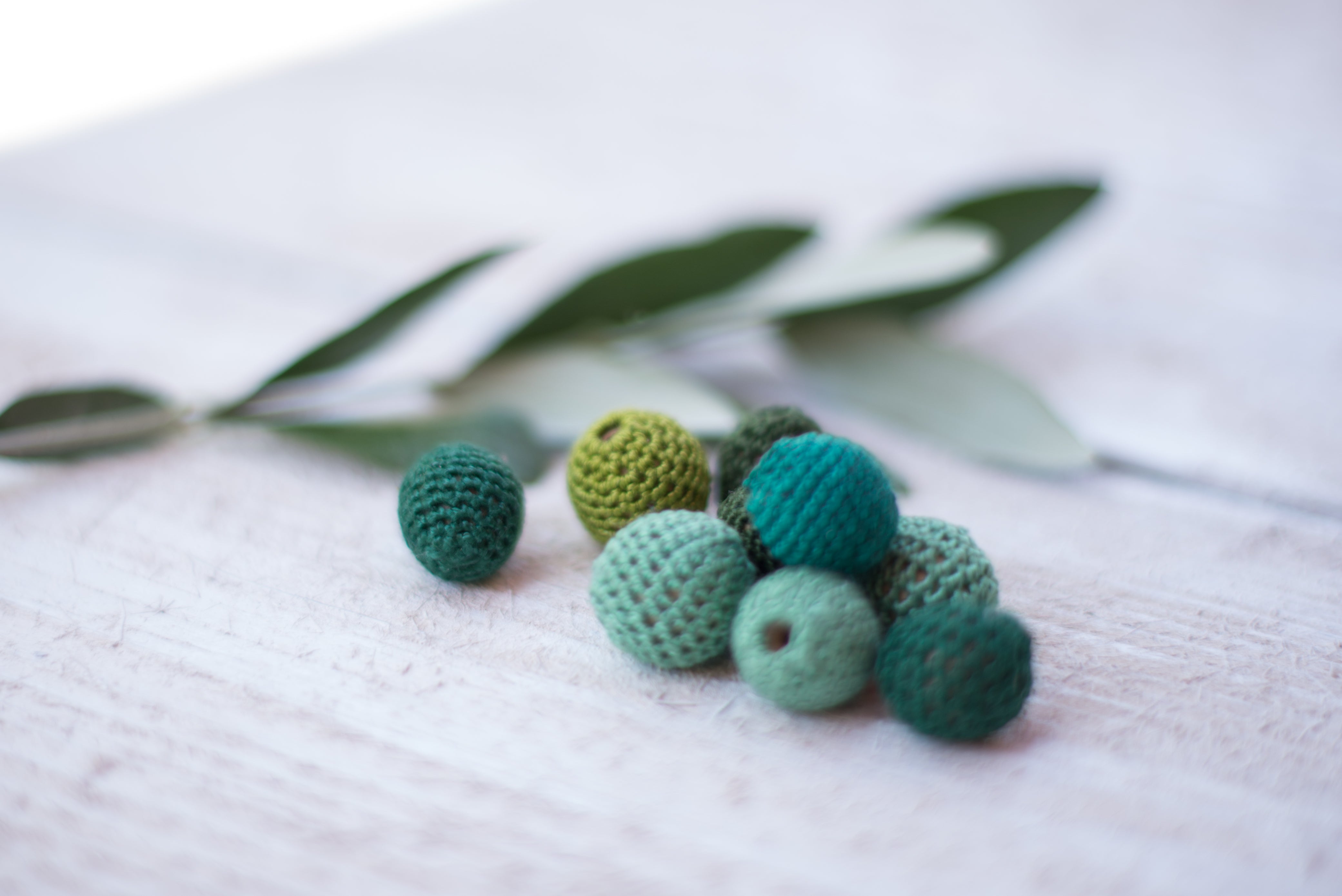
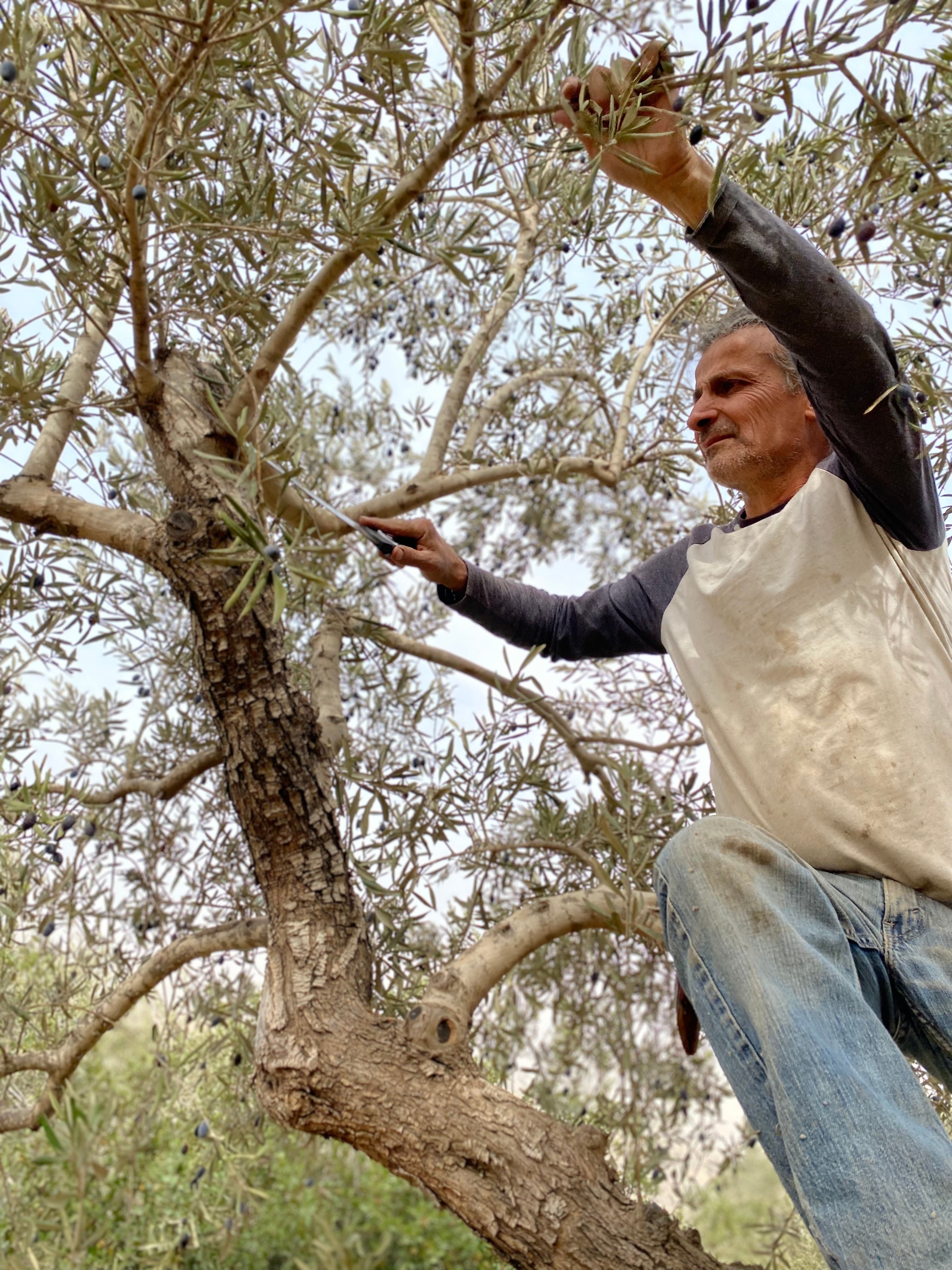
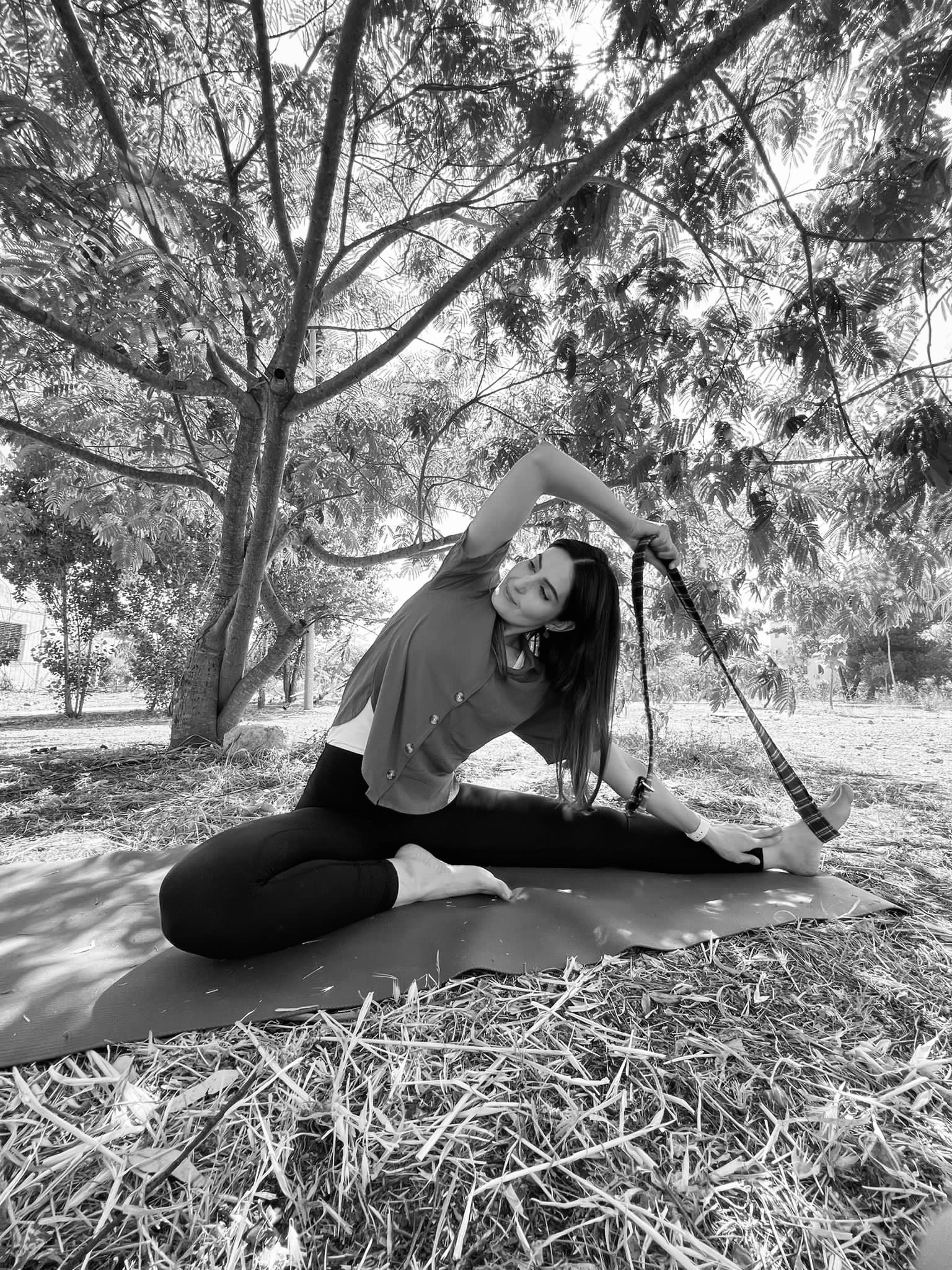



Leave a comment
This site is protected by hCaptcha and the hCaptcha Privacy Policy and Terms of Service apply.